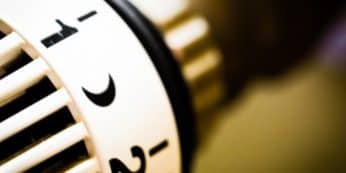We rely heavily on our heating throughout the winter months and it’s important to ensure that it is in good working order. With a cold winter just round the corner it’s important to know how to look after your radiators. The Manufacturers Association of Radiators and Convectors (MARC) have compiled their top tips for maintaining domestic radiators and how to maximise their efficiency.
Removing trapped air
Over a period of time air can become trapped inside your radiators. When they are full of air they don’t heat up properly, which means you won’t be able to heat your room properly. If your room feels colder than it normally is then you may need to bleed your radiator. It’s recommended that you bleed your radiators twice a year.
Painting
Be careful when painting your radiator. Too many coats can reduce the efficiency of the radiator.
Thermostatic radiator valves
Installing a TRV (thermostatic radiator valve) will allow you to independently control heat in every room of your house.
Keep clear
Try to avoid using radiator covers – TRVs sense the air temperature around them. Placing a cover over the radiator means that the TRV is enclosed, which means it will think that the room temperature is higher than it really is. If the TRV doesn’t know the correct temperature your radiator won’t work efficiently.
Keep your curtains out the way
Don’t tuck your curtains behind your radiators. Most modern radiators release half of their heat from behind the front panel. Tucking your curtains behind the radiator will restrict the flow of warm air. In some cases tucking in your curtains can completely block out this flow of warm air.
Drying your clothes
Don’t hang your cloths over the radiator – this reduces the efficiency of your central heating system. If you must use your heating you can buy a small radiator airer that can hang off and not restrict the flow of warm air.
Chose the right radiator
If you are buying a new radiator we recommend performing a Heat Loss Calculation. By imputing information about your home you will be able to work out the radiator Watt/BTU outputs required to ensure that your room will be heated efficiently.
Mixing radiators
If you need to change or add a new radiator it’s recommended that you stick to the same type of metal. Introducing more than one type of metal radiator in your home and increase the risk of corrosion.
In addition to taking care of your radiators, it’s important to make sure that the hub of your heating system – your boiler – is also looked after. You should make sure that you service your boiler every year; it’s quick and will ensure that your home and water is kept warm throughout the winter. If you would like to find out more about our boiler servicing please get in touch.


